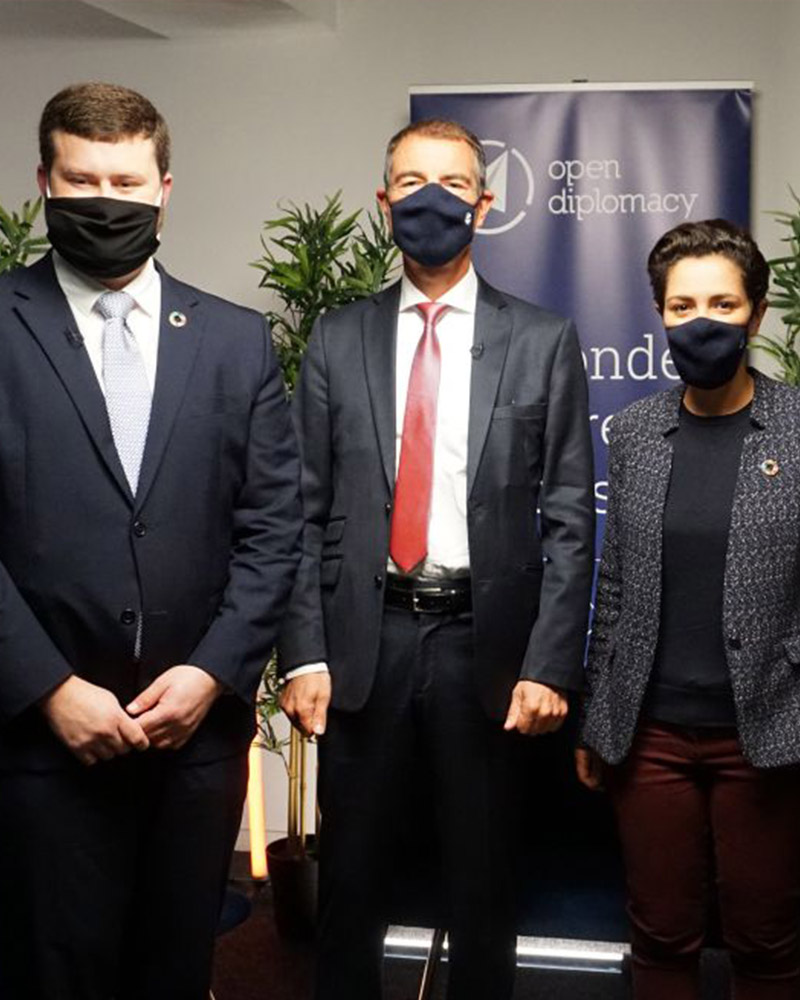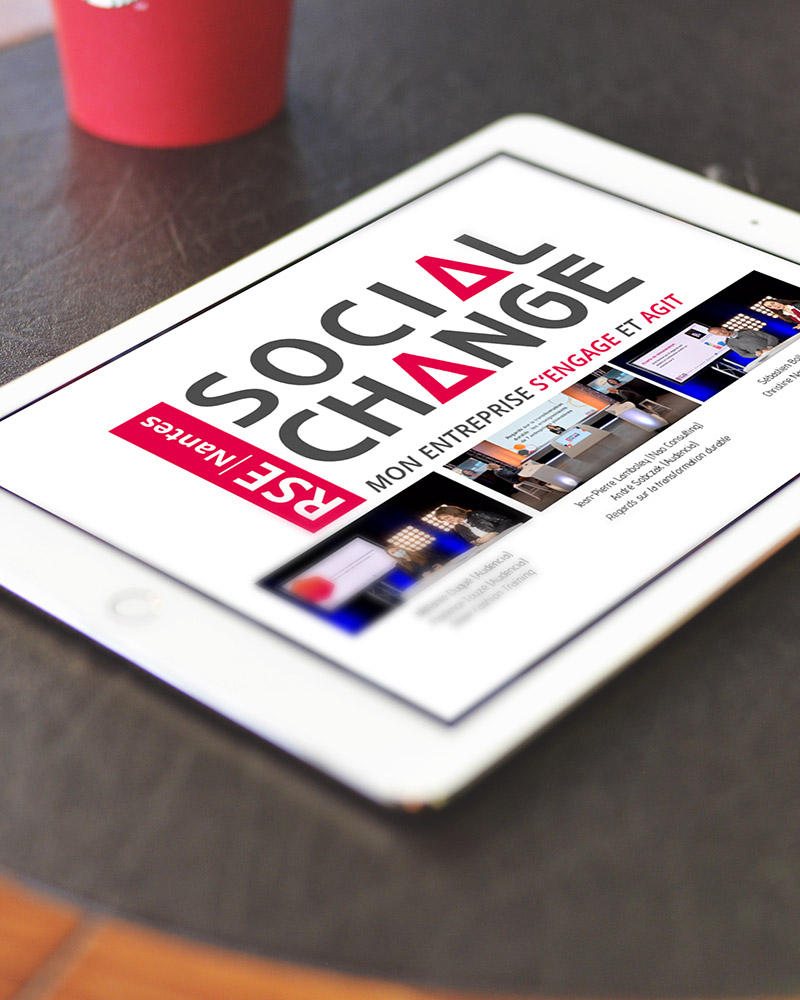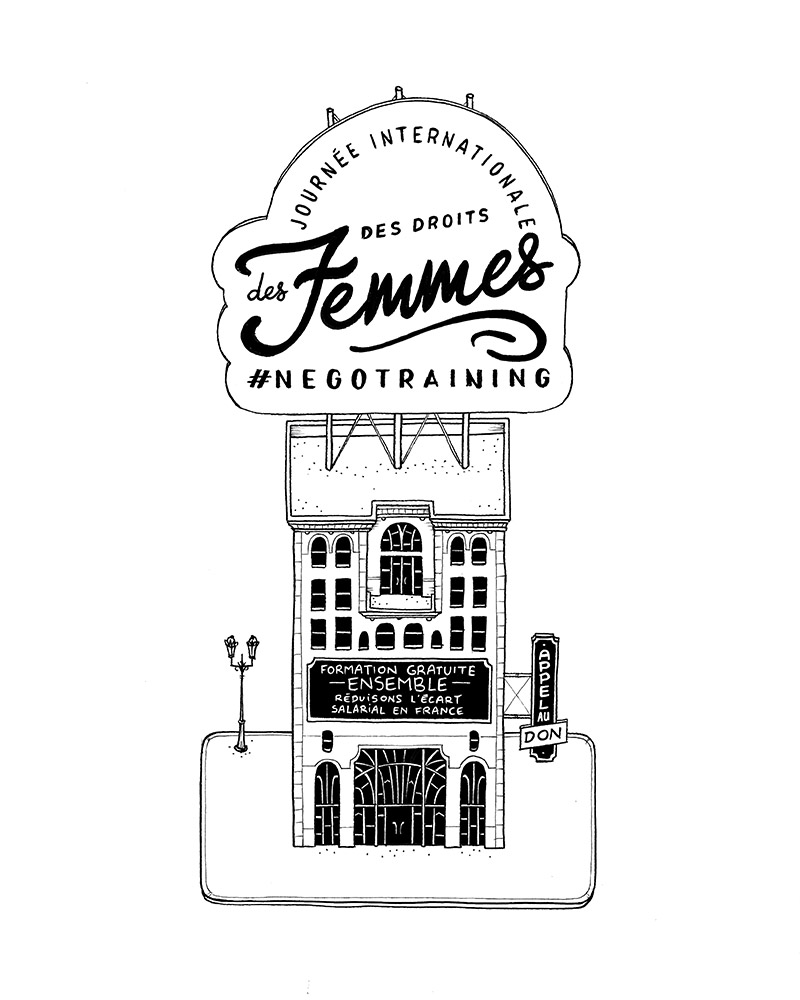To facilitate and support dialogue and debate among teaching staff, students, companies, government, consumers, the media, civil society, and any other interested groups and stakeholders about essential issues relating to CSR.
1100
participants in the 100% digital Social Change

2020
From 22nd to 29th September 2020, the Open Diplomacy Institute jointly organised, along with Audencia and four other French graduate colleges, the Sustainable Development Meetings (Rencontres du Développement Durable), under the high patronage of French President Emmanuel Macron.
The SDM were an opportunity to set up a political forum enabling the French to get a grasp of the subject of ecological transition and solidarity. These pluralistic and independent meetings for reflection allow economic, social and environmental issues to be addressed.
The meetings totalled 7 days of intense on-line debate, bringing together no less than 230 contributors and more than 50 partners in a veritable democratic commitment to a more responsible future.
The school directed the final day on the theme of “Carrying out a fair transition”. The programme included several masterclasses and round tables with distinguished guests, such as Joseph Stiglitz, the 2001 Nobel Prize Winner in economics, and Céline Mas, Chairwoman of the French branch of UN Women.
As the first French management school to sign the United Nation’s Global Compact in 2004, Audencia organised the day as part of its historical commitment to CSR, as stated by its Chief Executive, Christophe Germain: “Audencia has the ambition of being one of the places in the world that generates invention of new busines models and responsible managerial methods that have a positive impact on society, in social as well as environmental terms”. It was therefore only natural that Audencia participated in the SDM.

2020
On 10th December 2020, the 3rd edition of the Social Change event, the annual CSR assembly in Nantes, took place on-line. It adopted a 100% digital format based around content dedicated to CSR, to inspire, learn, develop models and act in favour of responsible economic development.
Audencia was present via the organisation of a conference and debate as well as two workshops.
The conference and debate were chaired by André Sobczak, the joint head of the CSR chair at Audencia, and Jean-Pierre Lamboley, founder of Nao Consulting. Its theme was a textbook case: “Examining sustainable transformation: the findings of the 7 pioneer companies”. The objective was to decipher the way in which these companies committed to transforming to a more sustainable business model.
A Slow Fashion Training session was then run by Florence Touzé, the joint head of the CSR chair at Audencia, and Mélanie Dugué, a research officer. The stake of this fashion-oriented workshop was purchasing differently, in order to be a more responsible fashion consumer.
To conclude, a collective free coaching module inspired by #NégoTraining was given by Christine Naschberger and Sébastien Bolle, experts in professional equality, as well as several members of civil society (HR directors, directors, trade union members, etc.) in order to train women in salary negotiations.

2020
#NégoTraining was created in 2017, resulting from a working group on gender equality on the Nantes urban area’s CSR platform. This free scheme, steered by Audencia’s Positive Impact chair, is aimed at raising awareness among women and providing them with the keys to succeed in their salary negotiations.
The second impact study, published in September 2020, confirmed the findings of the previous one (in April 2019):
Considerably increased confidence among participants
Before participating in #NégoTraining, 6% of the women said they were confident in negotiating their salary. 6 months after the workshop, this rate had risen to 57%. This increase in confidence is long-lasting: indeed, one year later, it is still at the same level.
A lasting and fruitful increase in confidence!
One year after their participation in the workshop, 64% of the women had negotiated their salary. More than half of them had obtained a salary increase, a bonus or fringe benefits.
Satisfied participants
98% of them recommend #NégoTraining and the average grade given to the scheme, namely 8/10, has remained stable since the initiative’s beginnings.
The study can be viewed here: https://fr.calameo.com/read/000137206c7e3e1a1d596

Objective for 2021
Slow Fashion Training, the latest module created by the Positive Impact chair, aims to raise awareness of the fashion sector’s impact, reflect on our purchasing behaviour, propose ideas for being a more responsible consumer and suggest ways to limit our collective impact.
The objective of the module is to raise awareness of the social and environmental impacts caused by the fashion sector and our consumer behaviour, to provide the basis for reflection on the real reasons for our purchasing behaviours, but also to propose ideas for changing them into a more responsible way of being a fashion consumer.
The next steps, in 2021, are to enhance and develop the module via co-construction. An initial working group will meet on 4th February 2021 to decide which subjects to focus on and how to address them. Around the table (or rather behind their screens) will be participants with varying profiles: students, fashion sector players, consultants, etc.
The ambition is to open the first sessions from May 2021 onwards.


